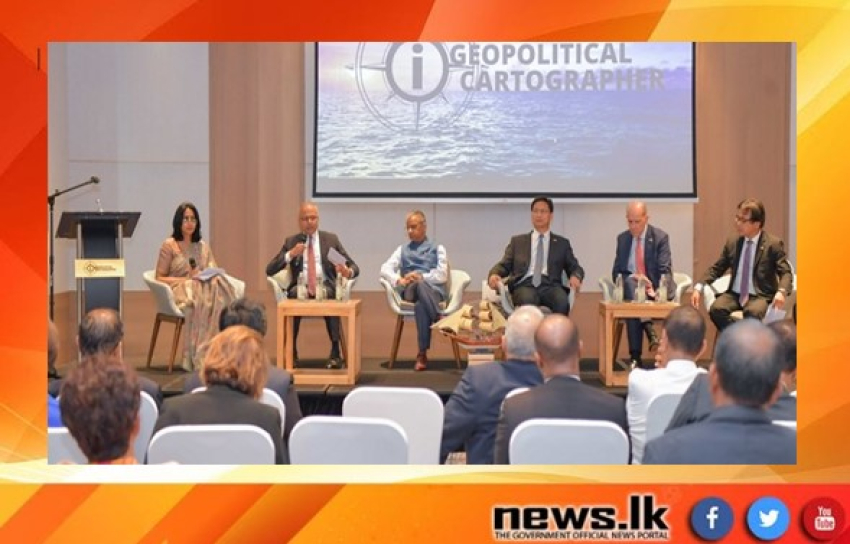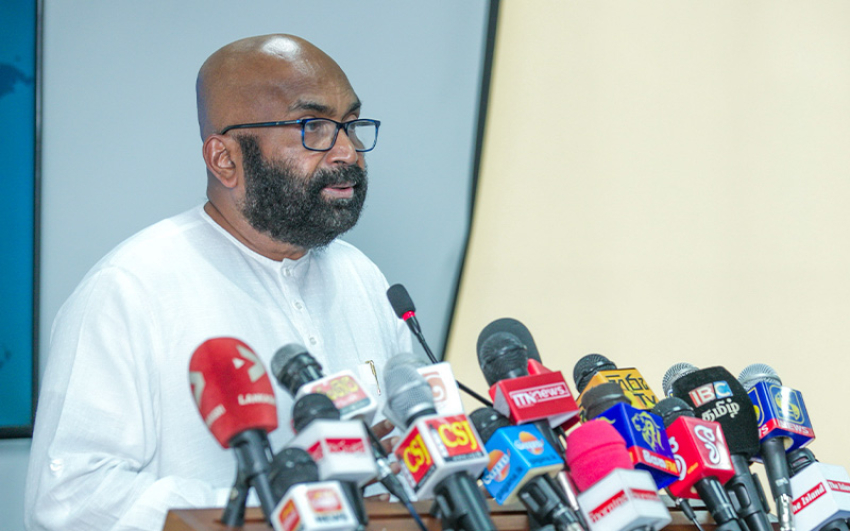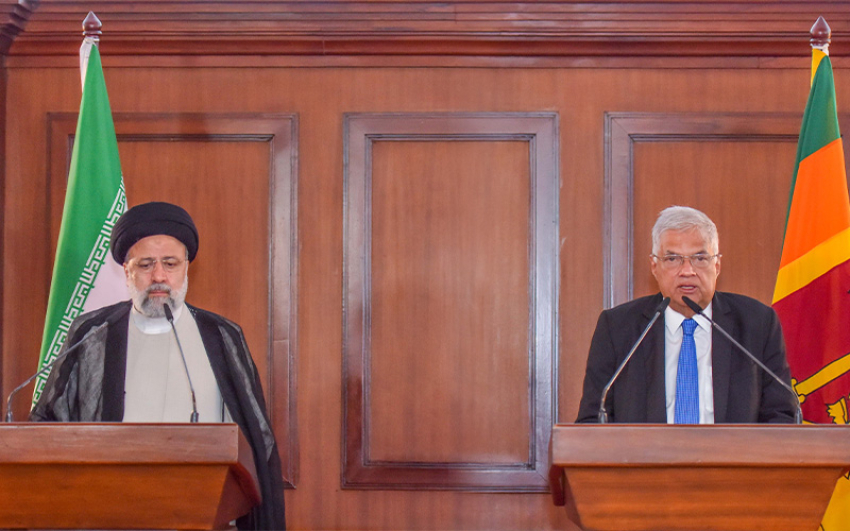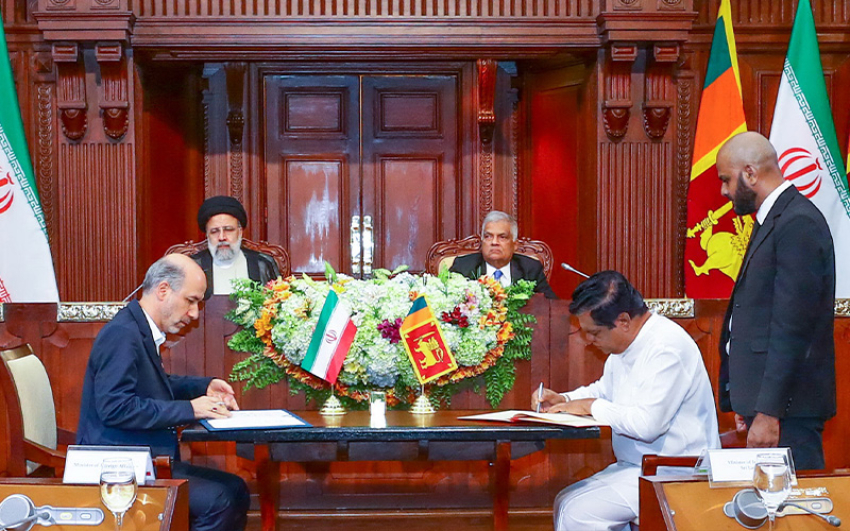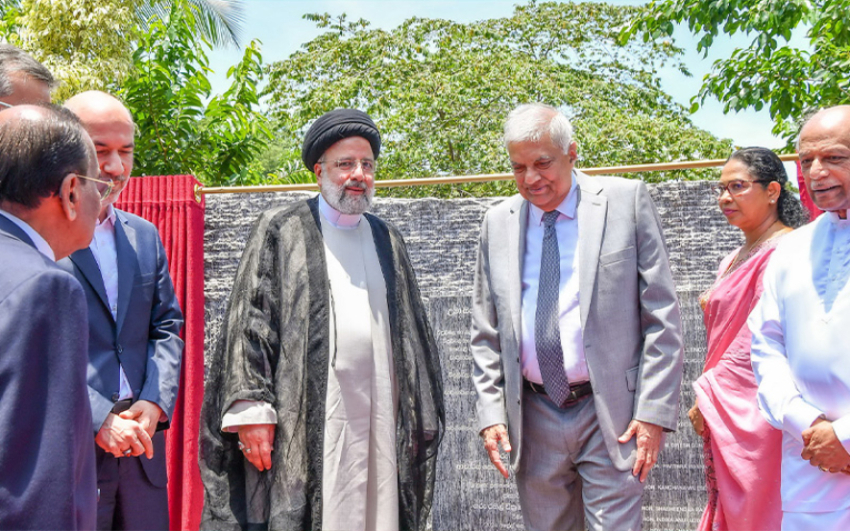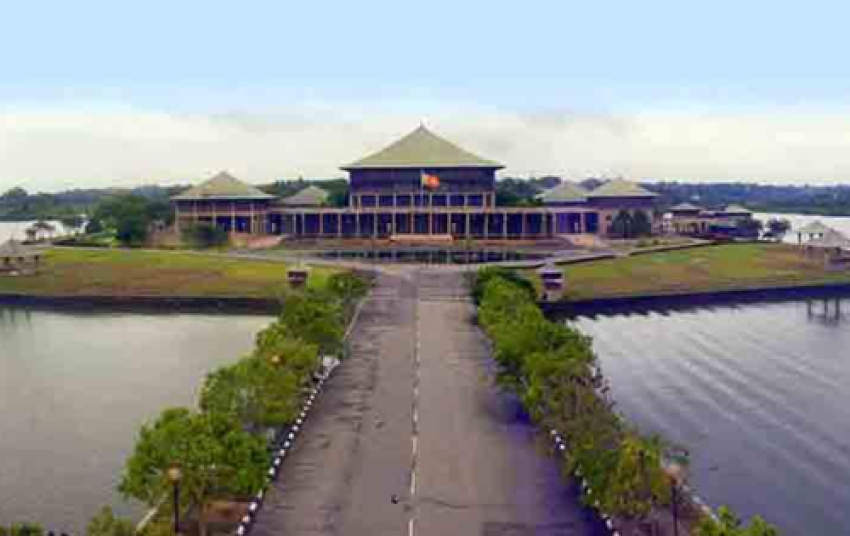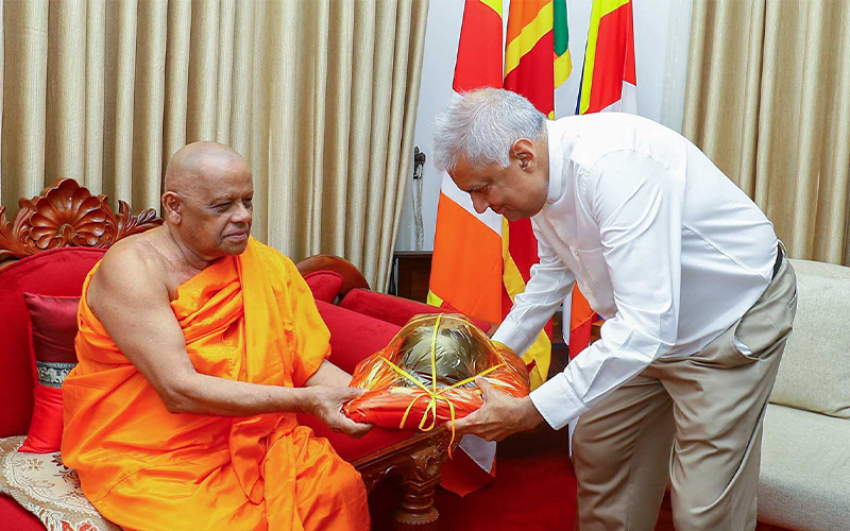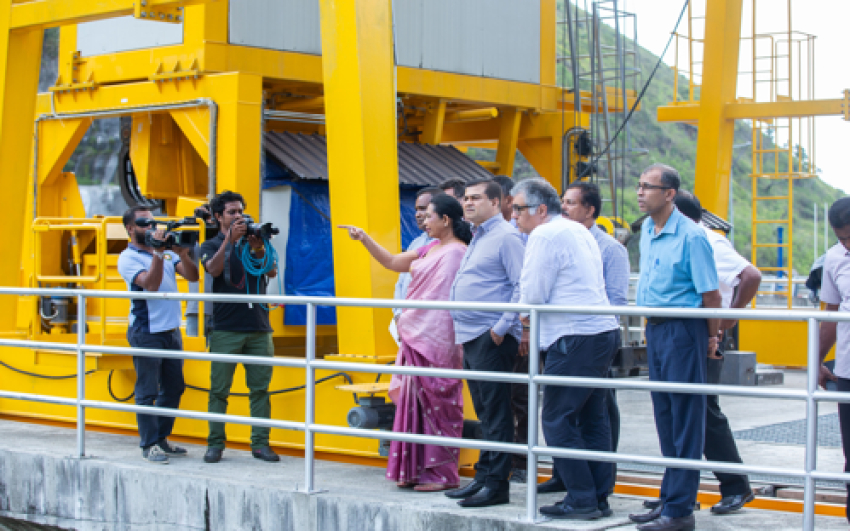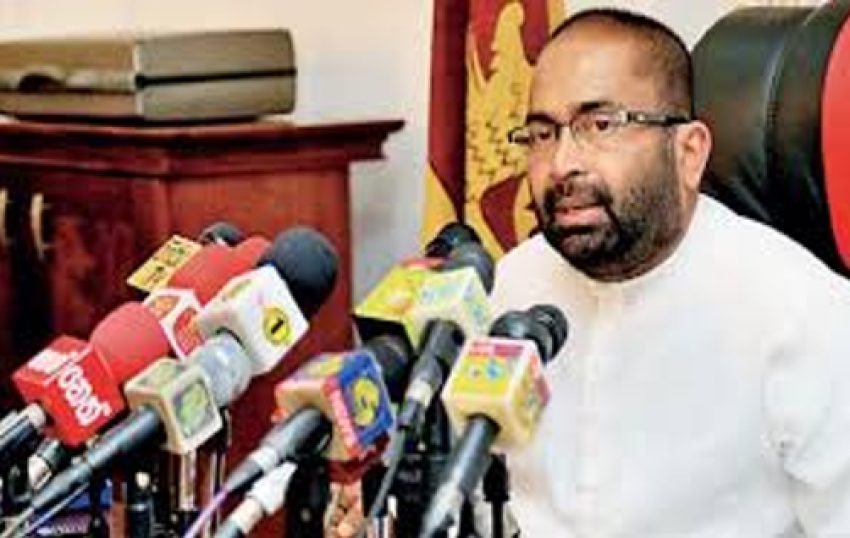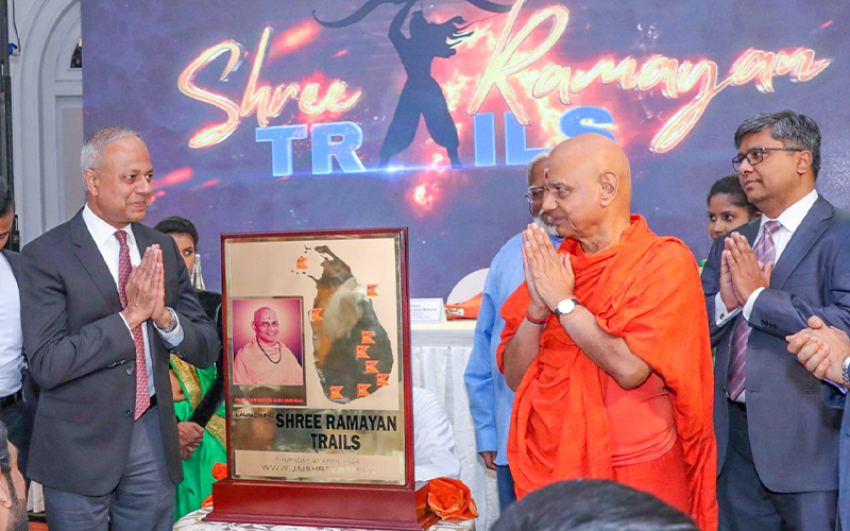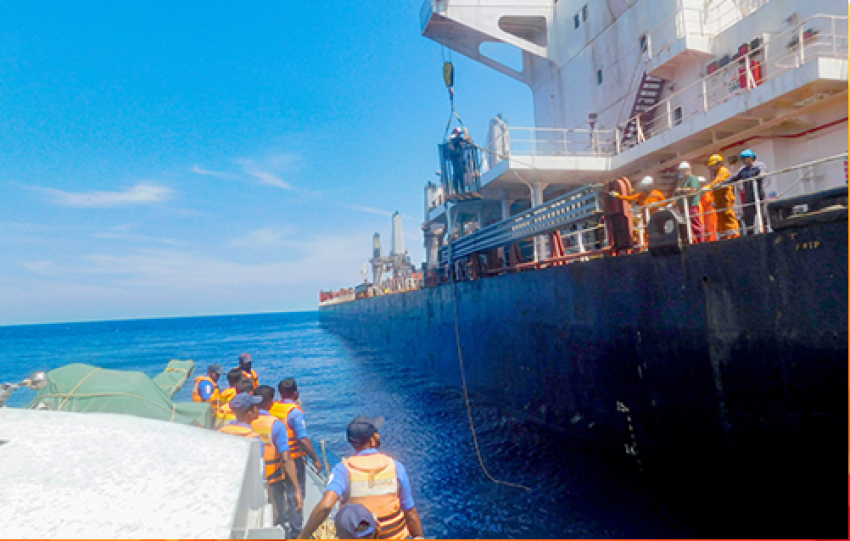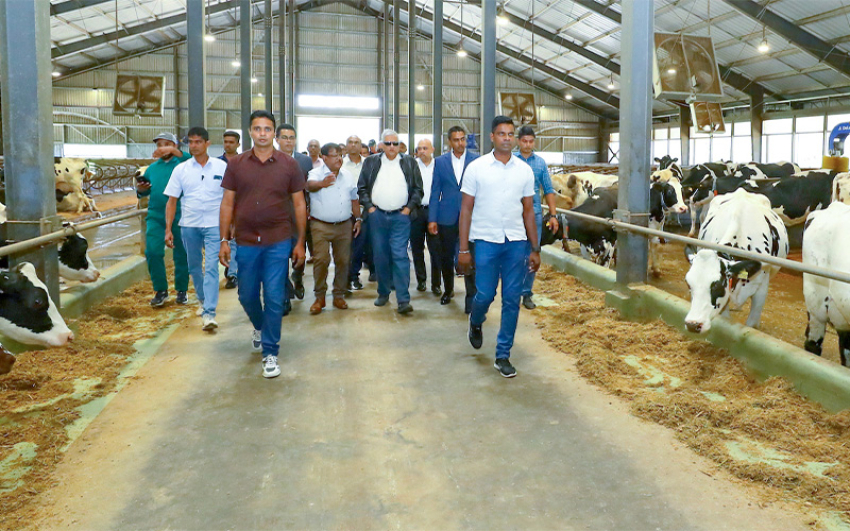In a landmark discussion held September (12) in Colombo, Mr. Sagala Ratnayaka, the President’s Senior Advisor on National Security and the President’s Chief of Staff, unveiled a bold vision for the Indian Ocean region. The event was attended by notable figures including President Ranil Wickremesinghe, former Speaker Karu Jayasuriya and high-ranking diplomats. The event highlighted Sri Lanka’s pivotal role in shaping the future of this strategically vital region.
Mr. Sagala Ratnayaka attended as the keynote speaker at the Geopolitical Cartographer discussion on the Indian Ocean and Indo-Pacific dimensions of recent high-level visits. He commenced the discussion by highlighting the profound transformation of the Indian Ocean from a mere maritime trade route to a global nexus encompassing security, economics, environmental concerns, social issues and strategic interests. He also emphasized the implementation of a robust reform program, which is poised to bring harmony to the Indian Ocean with its commitment to a free and open Indo-Pacific, while noting that the national interests of individual states significantly influence the international system.
He also underscored Sri Lanka’s unique position in the Indian Ocean region, highlighting the nation’s on-going economic recovery following the COVID-19 pandemic and the implementation of robust reform and revival programs. These initiatives have positioned Sri Lanka to play a crucial role in fostering harmony within the Indian Ocean.
One of Sri Lanka’s central policies in the region is the promotion of a free and open Indo-Pacific, encompassing maritime safety and security, protection of undersea cables, combating illegal fishing and trafficking, addressing human trafficking and tackling environmental issues, including disaster relief and maritime pollution. Mr. Ratnayaka drew attention to Sri Lanka’s responsibilities in Humanitarian Assistance and Disaster Relief (HADR) and stressed the importance of stability and growth through reform.
Mr. Ratnayaka acknowledged the importance of maintaining a stable and credible image, emphasizing that Sri Lanka’s reform processes and economic stabilization are crucial for attracting international support and cooperation. The domestic debt restructuring process in Sri Lanka is currently approaching its final stages, marking a significant milestone in the nation’s economic recovery efforts. This comprehensive restructuring initiative is designed to address and manage the country’s domestic debt obligations more effectively. One crucial step in this process involves the enactment of the Central Bank Act, a legislative framework that will provide the necessary regulatory framework and guidelines for managing domestic debt. Once this act is enacted, it will facilitate the completion of the domestic debt restructuring process. As part of this restructuring, Sri Lanka plans to convert existing treasury bills into bonds, a strategic move to better manage its debt portfolio and ensure long-term financial stability.
In the initial phases of the debt restructuring process, Sri Lanka sought assurances and support from international partners. Notably, the Paris Club, along with India and China, responded positively and cooperatively, extending their assistance to help Sri Lanka navigate its economic challenges. As Sri Lanka nears the completion of the domestic debt restructuring, it anticipates continued support from these key partners in the upcoming rounds of restructuring.
The discussion further emphasized connectivity in various forms, including air, sea, road, logistics, energy security and power grid development. Sri Lanka aims to collaborate with countries like Japan to build confidence in its reform process and attract investments.
France’s role in combating climate change and the establishment of a School of Regional Maritime Safety and Security in Trincomalee were among the key highlights of the discussion. Additionally, the talk emphasized the significance of Chinese investments in Sri Lanka, including the Port City and Hambantota, in driving economic growth and creating job opportunities.
As Sri Lanka positions itself as a key player in the Indian Ocean, the discussion underscored the pivotal role of the private sector in driving the nation’s vision forward. With global diplomatic support and ambitious plans, Sri Lanka’s aspirations for the Indian Ocean region have taken centre stage on the international platform.
The culmination of discussions during President Ranil Wickremesinghe’s visit to India resulted in the issuance of a visionary document that outlines Sri Lanka’s strategic goals for the region. This document underscores the central theme of connectivity, highlighting the importance of fostering robust connections by air, sea and road. It also emphasizes the significance of logistics, an efficient economy and the trading of currencies. Additionally, the document places a strong focus on digital finance and energy security, acknowledging their pivotal roles in Sri Lanka’s economic future.
The commitment to enhancing connectivity extends to the development of a power grid and pipelines for fuel, not only within Sri Lanka but also extending to its neighbouring regions. This ambitious approach aims to provide greater flexibility and reliability in meeting the energy needs of Sri Lanka and its surrounding areas.
Furthermore, the vision document prioritizes food security, with an emphasis on high-tech agriculture and the development of livestock and dairy sectors. These initiatives are aimed at bolstering Sri Lanka’s self-sufficiency in food production and reducing its reliance on imports. In addition to these economic facets, the document recognizes the importance of tourism, with India playing a vital role in Sri Lanka’s tourism industry. The focus on education, as emphasized by President Wickremesinghe, highlights Sri Lanka’s commitment to fostering a skilled workforce and promoting educational partnerships with India and other nations.
The recent high-powered visit to China was of great significance and it was noted that President Ranil Wickremesinghe will soon embark on his third Belt and Road Initiative visit to China. Notably, President Wickremesinghe had previously represented Sri Lanka as Prime Minister during the inaugural Belt and Road visit. In terms of China-Sri Lankan relations, Sri Lanka has benefitted from two substantial Chinese investments. One of these is the ambitious Port City project, which, while encountering occasional challenges, is currently undergoing consultations for the finalization of new legal frameworks. These legal adjustments are expected to be particularly enticing to prospective investors.
Additionally, discussions included the Hambantota investment, where the port has faced challenges due to a lack of sufficient maritime traffic resulting from delays in the development of the investment zone. Addressing this issue is deemed crucial for Hambantota’s full potential to be realized, as it holds the promise of job creation, the establishment of export industries and a significant increase in revenue for Sri Lanka. These topics, among others, constituted key areas of focus during the discussions between the leaders.
Both Japan and Sri Lanka emphasized the crucial role of the private sector in driving Sri Lanka’s development. This emphasis on the private sector’s leadership was a central theme in discussions and the vision document. Recent visits by Japanese officials highlighted discussions on climate change and education, aiming to build confidence in Sri Lanka’s reform process. Concerns among Japanese investors and private sector players prompted a call for reform, standardization and improved safety regulations to attract foreign investment. Overall, the focus remains on fostering a business-friendly environment and instilling confidence in foreign investors, particularly from Japan, to participate in Sri Lanka’s growth and prosperity.
Subsequently, during the diplomatic engagement with France, President’s discussions were conducted efficiently. A significant portion of the dialogue was dedicated to the critical subject of climate change, including the establishment of a Climate Change University. Moreover, the talks cantered on enhancing cooperation in regional maritime safety, with a specific proposal to establish the School of Regional Maritime Safety and Security. This institution is slated to be headquartered in Trincomalee while maintaining affiliation with the prestigious Kotelawala Defence University.
The discussion attended by notable figures such as High Commissioner of India HE Gopal Bagley, Ambassador of China HE Qi Zhenhong, Ambassador of France HE Jean-Francois Pactet and Ambassador of Japan HE Hideaki Mizukoshi, each providing unique perspectives on the region’s evolving dynamics and expressed their support for Sri Lanka’s Role in Shaping the Future of the Indian Ocean Region.
Secretary of the Ministry of Foreign Affairs Ms Aruni Wijewardane was the moderator at this event.

